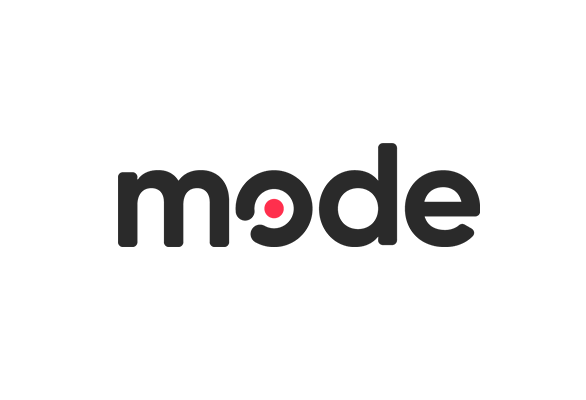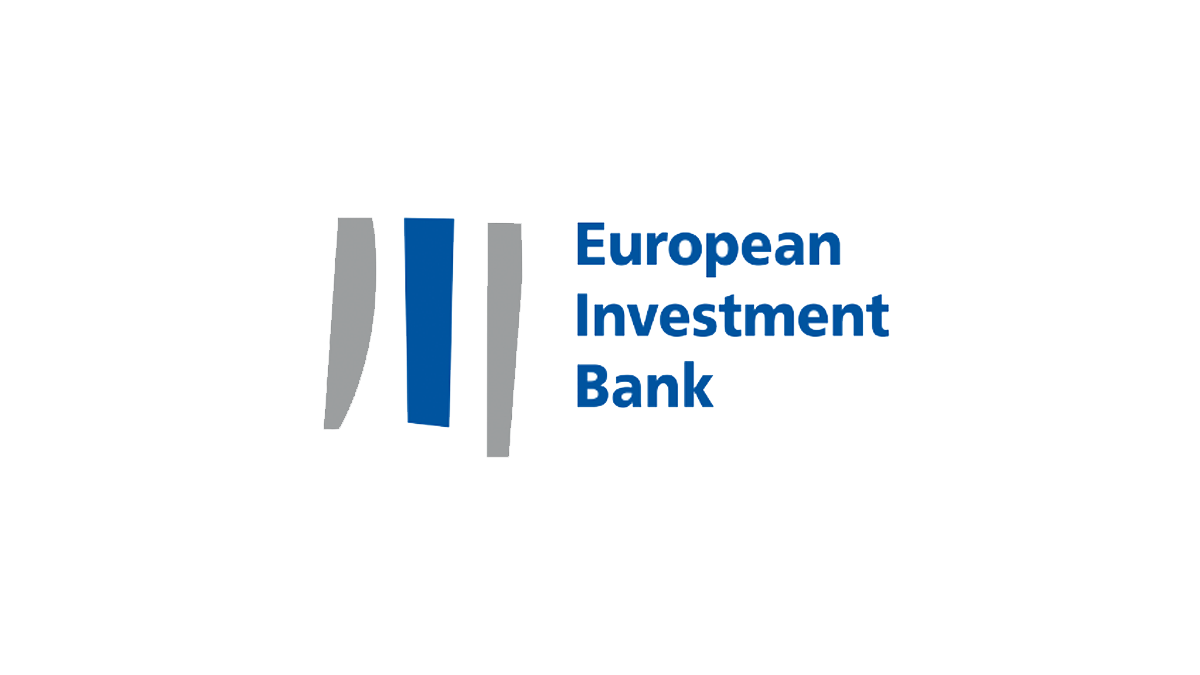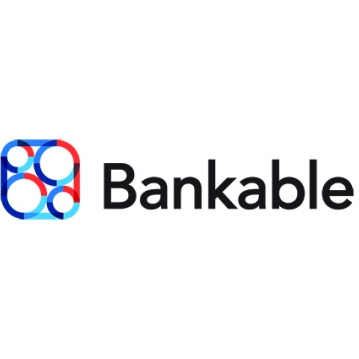Published
- 09:00 am

AcadiaSoft Inc., the leading industry provider of risk and collateral management services for the non-cleared derivatives community, today announced it will launch a joint initial margin analytics service with Clarus Financial Technology (FT).
The service, enabled by AcadiaSoft’s Access application (part of AcadiaPlus), allows Clarus FT to provide clients with margin analytics, calculations and modeling for non-cleared Initial Margin (IM).
Through the partnership, AcadiaSoft will make its IM data available via Access and provide the Common Risk Interchange Format (CRIF) data – which forms the input to the client’s SIMM™ calcuation – to Clarus FT. The service can be used by trading desks and treasury funding departments among others to perform “what-if” margin impact analysis and get an early forecast of the next day's IM requirements. .
Fred Dassori, Head of Strategic Development at AcadiaSoft said: “We’re excited to offer clients the ability to analyze and optimize IM on an intraday basis through Clarus FT’s platform. By collaborating with technology providers like Clarus FT, we continue to expand our role as the industry’s one-stop-shop for compliance with the Uncleared Margin Rules.”
Clarus FT’s technology uses CRIF files for input into the ISDA SIMM Margin Calculation, which provides the start of day initial margin baseline. New intraday trades and “what-if” trades are added to the CRIF baseline, enabling users to assess the IM impact of new or potential trades.
Amir Khwaja, CEO of Clarus FT said: “Our partnership will provide clients with direct access to AcadiaSoft’s initial margin and CRIF data, meaning that our customers can be live with actual production data in week one. As the industry grapples with burdensome regulatory requirements, it is critical that service providers work together to streamline post-trade infrastructure.”
Related News
- 04:00 am

Today, authentication platform Veridium launches its proprietary facial recognition technology, vFace.
Additionally, Veridium has developed innovative patented behavioural biometrics, which gather data from a device’s motion sensors in order to analyse particular patterns of behaviour unique to the user. This could be the way you use your phone, use an application, or use a biometric, complimented by the device’s location or time of day - providing an additional layer of security in the most seamless fashion. Veridium’s behavioural software can also uniquely be used in conjunction with a device’s native biometrics, as well as use workflows from other applications to inform and improve fraud detection.
John Spencer, Chief Product Officer of Veridium comments: “We are very excited to be launching vFace, our facial recognition software, which complements our existing digital fingerprint technologies on VeridiumID - our robust authentication platform. vFace allows advanced security solutions to be implemented on any smartphone with a front camera - replacing expensive equipment with a frictionless and convenient app. Businesses implementing biometric authentication such as vFace will see increased security, without the associated costs from substantial password administration and data breaches.”
“We are also delighted to offer our unique behavioural biometrics capabilities, which we believe signal a new era in cybersecurity. In the event a malicious actor steals someone’s device and attempts to impersonate their biometrics, they will have an extremely difficult time trying to replicate the genuine user’s unique mannerisms. By unlocking the power of behavioural biometrics, Veridium can help businesses penetrate the final frontier in security in a way that is both transparent and seamless for the end-user.”
“As we move to a passwordless society, it is crucial to take a strategic approach to implementing biometric security and authentication - selecting the appropriate biometric for the right use case depending on the scenario and level of security required. More choice also means a better user experience, for both employees and consumers.”
Ali Niknam, CEO of digital bank bunq, comments: “The decision to move away from passwords to more innovative methods of customer authentication is an important one for us. Integrating biometrics as part of a multi factor approach is hugely valuable in the fight against rising levels of fraud. At bunq we strongly believe in delivering the highest level of security and robust protection for our customers whilst providing them with the most seamless user experience, which is facilitated by Veridium’s cutting-edge biometrics.”
Related News
- 03:00 am

London-based fintech firm Mode, advised and backed by Twitter co-founder Biz Stone, has launched its Bitcoin banking mobile iOS app.
The platform is available to users globally, except in the United States of America.
A Mode account can be opened in less than 60 seconds, with Know Your Customer (KYC) requirements completed in less than two minutes through AI-enabled identity verification technology. Once users are whitelisted, depositing GBP via bank transfer and buying Bitcoin takes seconds.
Mode’s launch is supported by new research (1) which reveals that many current and potential Bitcoin investors are unhappy with the platforms and services currently on offer. Findings (2) also reveal the potential for strong Bitcoin market growth, as 42% of people who currently own Bitcoin plan to buy more, 51% of people surveyed indicated they may buy Bitcoin soon, and just a small fraction of respondents, around 7%, said they have no intention of currently buying the digital asset.
Through its new easy to use app, Mode aims to bring down the barriers and open up the Bitcoin market to everyone, not just tech-savvy or professional investors. As a result, users can get started with only £50, and unlike many other apps, Mode only charge a very competitive fee of 0.99% at the time of purchasing and selling Bitcoin. Mode doesn’t charge for transferring GBP in and out of users’ accounts, and funds are credit almost instantly via Faster Payments - a process that can take up to 5 days with some of the most renown crypto exchanges.
Users can buy Bitcoin with bank cards or via a bank transfer, which is then safeguarded through one of the world’s leading digital asset custodians, BitGo.
In addition to its new app, Mode has also announced plans to launch a Bitcoin interest-generating product later this year, which would allow users to earn passive income on their Bitcoin holdings without having to touch their assets.
Biz Stone, co-founder of Twitter, joined Mode as an advisor of the project. He has also invested in Mode and acts as a non-executive director of R8, Mode’s parent company.
“Although there are multiple existing ways to access the Bitcoin market right now, few appeal to the everyday person, who wants to buy and hold some Bitcoin. Most of the current apps all have one problem at their core—access.” Biz Stone commented; “Mode has removed needlessly complex processes from their app, building a beautiful and responsive UI and UX rivalling that of the major challenger banks—while also launching a completely new and innovative Bitcoin product.”
Ariane Murphy, Head of Communications and Marketing, Mode, said: “Our new app not only enables us to capture the huge growth in the Bitcoin marketplace, but also tackles many of the issues people have with the current platforms and storage services available, which our research shows are significant. The Mode app addresses transaction restrictions issues, low speed/high cost, lack of security and most importantly, tackles the poor user experience typically associated with Bitcoin apps.”
“Until the beginning of this year, we pilot-tested our app with some 1,000 early subscribers and their feedback has been very positive. This, coupled with the strong growth in the marketplace, means we are confident that now is the right time to launch to the wider pubic.”
Challenges to tackle in the digital asset markets - new research
Mode recently conducted research (1) with people who already own digital assets, revealing that 41% of respondents described the process of transacting Bitcoin through existing solutions as average or poor, with just 13% describing the process as excellent.
Some 37% say the level of security offered by the platforms they have used is again average or poor, with 41% claiming security is good and 21% excellent - signifying some room for improvement.
In terms of overall user experience, just 56% describe other digital asset services as good or excellent, with 32% saying it is average and 11% describing their experience as poor.
Mode is part of R8 Group, a UK fintech group which raised $5m in a heavily oversubscribed funding round in April 2019, backed by an experienced management team with extensive experience in the financial services and technology sectors. Prominent members of the R8 Group include serial entrepreneur Jonathan Rowland, and Twitter co-founder Biz Stone.
Related News
- 09:00 am

The European Investment Bank (EIB) and Azimo, the European money transfer service, today announced a EUR 20 million debt agreement.
The loan will help Azimo accelerate its expansion, including the development of its proprietary automated payments platform. Currently, some 130 of Azimo’s 160 total staff are based in Kraków, and EIB financing will enable the company to grow its technical team there more rapidly.
“Working in one place but putting your money to work in another is a common feature of our time,” said Lilyana Pavlova, Vice-President of the EIB in charge of operations in Poland. “Yet far too many people don’t have bank accounts or other means to send and receive money. Companies like Azimo make money transfer easy, safe and affordable. They are a game changer - not only for the market, but first and foremost for the people who, thanks to them, save money and time.”
Commenting on the investment round, Michael Kent, Founder and Chairman of Azimo said: “While Europe is the largest international payments market in the world, it is poorly served by legacy providers, so slow delivery times and very high costs are the norm for European consumers and businesses. At Azimo we are building a European payments champion with near-instant delivery at super low cost. We are excited to have the European Investment Bank’s support in our mission to be the better way to share money around the world, improving millions of lives.”
Valdis Dombrovskis, European Commission Vice-President for an Economy that Works for People said: “People need to be able to transfer money as quickly and safely as possible. This is a priority of the Commission and we will continue to support successful companies such as Azimo to boost the European fintech sector and improve the experience of millions of customers.”
In the past decade, the global money transfer market has gone through unprecedented change. While the bulk of the business still happens via traditional providers and retail banks, digital players, who use new technology to increase speed and drive down cost, are disrupting the industry and winning market share. These cost reductions are championed by the United Nations in the Sustainable Development Goals (goal 10.C): they have a significant impact in emerging economies where inbound remittances received from overseas workers often represent a high proportion of total GDP.
According to the World Bank, global remittance volumes stood at USD 642bn in 2018, and are forecast to reach more than USD 700bn by 2021. Europe is one of the largest sending regions globally.
Related News
- 08:00 am

Bankable, the global architect of “Banking as a Service” solutions, today announced a strategic collaboration with Visa in the United States. Bankable aims to provide Visa’s U.S. clients, including corporate and financial institutions, access to its real-time and modular banking solutions, enabling them to deploy digital banking and faster payment services. To accommodate ongoing work in the U.S., Bankable is opening an office in New York, which is Bankable’s fourth office after London, Brussels and Dubai.
The new premises will become Bankable’s U.S. hub, allowing the company to accelerate strategic initiatives across corporations, banks and fintechs headquartered in the country. The company is planning to make strategic hires in the next few months as the NY team will shoulder London and Dubai operations.
“Our strategic partnership with Visa represents a great opportunity to further accelerate digital payments innovation in the region. Our commercial team will initially focus on B2B payments,” said Eric Mouilleron, CEO and founder of Bankable. “As we already serve American clients, we see huge opportunities to digitally transform corporates headquartered in the U.S. as well as leading regional, community and selected global banks organized to support fintechs. We anticipate more than 50% of our revenues to come from the U.S. by 2024.”
“The financial ecosystem is evolving at rapid pace, and Bankable’s model helps financial institutions, corporates and fintechs be increasingly nimble to remain competitive,” said Terry Angelos, SVP and Global Head of Fintech, Visa. “Building on what we’ve done with Bankable in other regions, including CEMEA and Europe, we’re excited to now extend the partnership into the US.”
Related News
- 01:00 am

CQG, a leading global provider of high-performance technology solutions for traders, brokers, commercial hedgers, and exchanges, today announced the establishment of a partnership with DVeX, a new cryptocurrency exchange built by and for institutional traders. The firms have collaborated to offer CQG front-end platforms to DVeX clients for cutting-edge trading tools and analytics, effective immediately.
Created by the founders of DV Trading, DVeX was designed to deliver a world-class institutional cryptocurrency trading platform to meet the demands of professional traders by leveraging decades of experience as market makers and liquidity providers on traditional exchanges.
Dino Verbrugge, Founder, DV Group, said: “The DV team is excited to announce our partnership with CQG, which will enable DV to advance our vision of creating a true institutional trading environment for crypto assets. DVeX is now integrated with CQG’s platform, streaming live, reliable and actionable cryptocurrency prices directly to CQG’s clients, who will now be able to add DVeX as an additional venue to transact cryptocurrencies just as they would any other exchange.”
Alli Brennan, CQG Chief of Staff, said: “CQG’s suite of trading products, along with our connectivity to futures exchanges listing cryptocurrencies, gives DVeX customers consolidated access to more trade opportunities and the tools they need to make smart decisions. We’re excited to partner with DVeX to reach new institutional crypto traders and offer an exciting opportunity to our existing network of customers who will have access to this important new marketplace.”
Related News
- 05:00 am

Glasgow-based regulatory technology (regtech) firm Encompass has received a £1.97m research and development (R&D) grant from Scottish Enterprise to develop an Artificial Intelligence (AI) Platform for its financial services clients, it was announced by First Minister Nicola Sturgeon today.
The funding is part of a project with a total value of £4.9m, which will create 33 new high-value RegTech jobs in the city.
The AI service being developed will help Encompass customers to quickly and accurately find risk-relevant information about their customers, organisations and investments, from a wide-ranging pool of data.
Adverse news reports and risk-relevant data can have a significant impact on the market value of companies. Encompass has heard from many clients who want to avoid carrying out manual searches and instead find an accurate and automated way to collate this type of data in order to help manage their reputational risk.
Encompass‘ work in Glasgow, where it already employs 46 people, has primarily been focused on its Know Your Customer (KYC) product – using data analytics to ensure its clients do not unknowingly trade with organised crime or the proceeds of crime, in keeping with new legislation introduced after the global financial crisis.
First Minister Nicola Sturgeon said:
Encompass is one of a number of international companies that have chosen to locate and steadily expand their operation making Scotland an attractive place to grow its business. From its Glasgow base, the company has access to markets, a supportive business environment and has been able to identify local talent from Scottish professionals in the engineering and software development sector.
Backed by almost £2 million of R&D investment from Scottish Enterprise, Encompass will be able to develop artificial intelligence software tools that will assist companies in the financial sector reduce operational risks associated with meeting compliance and regulatory standards.
Wayne Johnson, Co-Founder and CEO, Encompass, said:
We are delighted to receive this grant, which will allow us to carry out crucial, timely work. There is a considerable demand in our space for a solution of this kind, and this development will be central to us continuing to bring innovative solutions to the market and our customers.
Paul Lewis, Managing Director, Scottish Enterprise, said:
We have a long-standing relationship with Encompass, having supported the company to choose Glasgow for the development of its initial KYC product. It’s great to see Encompass expanding its presence into this new area of AI with its adverse news screening tool – for which there is a strong and immediate market demand. The decision to bring further investment to Glasgow is another vote of confidence in Scotland’s already-strong reputation for tech innovation and as a location for skilled and high-value jobs.
Related News
- 02:00 am

Forter, the leader in e-commerce fraud prevention, today announced availability of the Forter Loyalty Program Protection solution to protect high value rewards programs from fraud and abuse, enabling merchants to offer enhanced programs with the best possible customer experience.
Loyalty program fraud rose 89% year on year, predominantly driven by the amount of personally identifiable information (PII) available from increasing numbers of data breaches. With direct and indirect losses from loyalty and reward points fraud estimated at $1 billion every year, enterprises are struggling to limit damage as fraud attacks shift from the point of transaction to different elements of the buyer’s journey, including new account signup, login, and promotion and coupon use.
“Our loyalty program allows us to thank our customers by rewarding them with better benefits and a better experience while also enabling us to stay ahead of the competition. Features like ‘Tell-a-friend,’ rewarding customers for referrals, are extremely popular, but are also a target for fraudsters and bad actors,” said Doug Ferreira, Director, Financial Operations, delivery.com. “Forter has helped us reduce loyalty program fraud by more than 60 percent while we build stronger relationships with our customers.”
Loyalty programs have grown steadily in the last decade, with memberships increasing nearly 10% year on year. Consumers have accumulated $48 trillion of unspent loyalty points globally. Nearly half (45%) of loyalty program accounts are inactive, with consumers not tracking or redeeming points.
Merchants are unprepared to protect their loyalty programs, according to research conducted by Forter:
● 42% state that they do not have the skills required to prevent fraud and abuse.
● Nearly 50% report insufficient resources, and that loyalty program account fraud prevention is considered a low organisational priority.
“The combination of consumers not paying attention to their accounts and merchant lack of preparation is a big reason fraudsters find loyalty and rewards programs so alluring. It is clear that loyalty program accounts are low hanging fruit for fraudsters,” said Michael Reitblat, CEO and Co-Founder of Forter. “Loyalty program points are a currency as valuable and untraceable as cash, and fraudulent activity in these accounts causes damage to brand reputation and monetary losses to merchants and consumers alike.”
Cyber criminals take advantage of loyalty programs in several ways. The most significant attacks include:
● Account takeover: Fraudsters hack into member accounts, exploiting accumulated points and payment instruments saved in the account.
● New account fraud: Fraudsters create fake accounts, often using stolen identities, and use them to accumulate, store, sell, and redeem stolen points.
● Policy abuse: Consumers overshare coupons or promotional codes, violating merchant policies and illegitimately gaining program rewards.
Forter’s Loyalty Program Protection solution is the only integrated fraud prevention platform that protects loyalty programs from all types of fraud and abuse, including transactional fraud, account-based fraud, and policy abuse.
“Merchants need to fight fraud together. Forter’s Loyalty Program protection solution gives merchants the only fully integrated fraud protection platform that protects 100% of the customer journey, not only at the point of transaction,” said Reitblat. “Powered by a coalition of the biggest enterprises and designed by the world's foremost experts, only Forter can provide the intelligence needed to stop fraudsters in real time and enable the best consumer experience.”
For more information, visit the Forter website.
Related News
- 06:00 am

Berenberg announces the launch of its customer-centric digital Wealth Management portal. This follows a successful pilot after working with Backbase to update its digital offering. This portal is a direct response to the growing demand from Berenberg’s clients for a partner in Wealth Management capable of catering to clients across all channels.
Tobias Bodem, Senior Project Manager, Berenberg, said: “It’s no secret that our current client base and even more, the next generation client base are expecting a mature digital offering, meaning their expectations of everything – ranging from investment choices to how we engage with them – is evolving. Through our partnership with Backbase, we had all the tools and skills required to develop a portal that puts the customer right at the center of the user experience. Users are able to access all the information regarding their portfolio wherever they are, from any device.
“But this doesn’t replace personal interaction. It enhances it. With our portal, customers can get in touch with relationship managers and obtain the required information effortlessly via the client’s fingertips” continued Bodem.
Berenberg will continue to move forward with its agile, user-centered methodology, utilizing the Backbase banking platform to further process client feedback in order to perfect its digital services.
Jouk Pleiter, CEO of Backbase, added: “Wealth management firms cannot ignore the benefits of digital services – those that are built with the client always front of mind. We are committed to bringing these innovations to life with our customers. Through our work with Berenberg, we’ve been able to develop a service that will enhance the unique relationship between its clients and advisers – via an omni-channel interactions which wasn’t available before.”
Related News
- 04:00 am

A new global survey commissioned by ING shows consumer attitudes have reached a tipping point, leading them to avoid brands that don’t prioritize sustainability and environmental issues. Despite demanding change, customers will still engage in the linear ‘convenience economy’ model of ‘take, make and waste’ unless companies offer a more seamless transition towards the ‘circular economy’. Faced with potential damage to profitability, businesses must offer more convenient sustainable options to consumers in order to create meaningful engagement with the circular principles of ‘reduce, reuse and recycle’.no its
According to the new report, titled ‘Learning from consumers: How shifting demands are shaping companies’ circular economy transition’, the majority of respondents believe their behavior and choices can have a positive impact on addressing global environmental challenges (83 percent). Furthermore, 61 percent say they would be less willing to buy a company’s product if they discovered it was performing poorly on environmental practices.
The findings, which provide a detailed analysis of consumer interactions with fashion, food and electronics brands, highlight where consumers are already engaging in circular activities and their appetite for new product and service models. The report notes the potentially vast gains for businesses that embrace the ‘reduce, reuse, recycle' principles of the circular economy by aligning with consumers’ changing demands.
To better capture the opportunity of the circular economy and engage with these customers, companies must first understand the barriers to widespread consumer adoption. The barriers include:
- Awareness and education: In the electronics industry, only 21 percent think companies provide detailed information on the overall environmental impact of products; 41 percent don’t know where to access repair services; 71 percent aren’t aware of device-sharing platforms; and 39 percent can’t distinguish between recyclable and non-recyclable plastics.
- Empowerment and reassurance: The top reason for not repairing clothes is consumers’ belief that, to do so, they need skills they don’t have, with 48 percent having this sentiment. Meanwhile, concern about data security (42 percent) is the second-most cited concern around leasing electronic devices.
- Circular infrastructure and convenience: Engagement with more novel circular practices is being held back by the perceived effort required: 41 percent think renting clothes would require a lot more effort, and 36 percent say time is a barrier to repairing devices.
- Cost: Price is still a decisive factor for many consumers when buying clothes, food or electronic devices. More than half (54 percent) of consumers still choose low-cost, fast-fashion items over more expensive, more durable ones.
For companies to address these barriers for all of their customers they need a deeper understanding of consumer motivation. ING’s analysis identifies three broad groups: ‘Circular Champions’, ‘Circular Sympathizers’, and ‘Non-engagers’. The report identifies within each industry sector the different buying decisions, behaviors, and motivations of each group in embracing – or not – circular economy practices. Through understanding the differences in motivations from each consumer segment, brands can gain insight into how to transition to circular business models while also engaging those whose buying decisions are not based on environmental factors.
In a related report issued last year, ‘Opportunity and Disruption: How Circular Thinking Could Change U.S. Business Models’, nearly four in five U.S. firms had a strategic intent to implement a circular economy framework (62 percent) or had already put one in place (16 percent). ING’s two circular economy reports recognize businesses' and consumers’ progress in transitioning and engaging with the circular economic model.
Methodology
● Longitude, a division of the Financial Times Group, surveyed 15,001 consumers in 11 countries across Europe, APAC and North America during Q3 and Q4 of 2019.
● A nationally representative sample based upon age, gender and income was targeted within each market.
● Consumers were asked about their attitudes and current interactions with fashion, food and electronics brands, as well as their appetite for emerging product and service models.
View the report here https://www.ingwb.com/media/3076131/ing-circular-economy-survey-2020-learning-from-consumers.pdf









